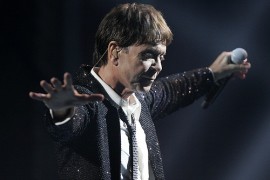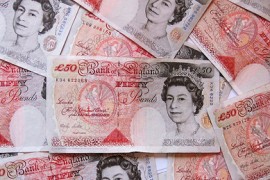James Harding, the director of BBC news, gave this speech in which he sought to defend the Corporation’s General Election coverage to the spring conference of the Voice of the Listener and Viewer on June 2.
News-watch is preparing a full response to the sweeping generalisations he made about lack of bias. It will be posted imminently, and will be evidence-based. In the meantime it is noted that – as is usual for BBC defences of its output – the claims are not supported by a scrap of evidence. The speech is based on generalities that add up to only to a bombastic statement that ‘We know we got it right’.
A first reaction is here on the Biased BBC website. This is an extract:
“… the speech could be a sign that he has given up the arduous task of thinking for himself and has merely resigned himself to the groupthink inherent in working for the BBC…..living in the Bubble in total denial about what the BBC does, completely divorced from reality, detached from the real world….for instance the small quote at the head of this post is one Harding thinks worthy of highlighting on the webpage….and yet it is totally at odds with how most people see the BBC and indeed the experience of anyone who has the temerity to actually complain to the BBC and receives a swift kick to the crown jewels.”
It is noted that the panel at the event was made up of broadcasting establishment figures, most with close BBC connections.
James Harding Speech at VLV Conference 2 June 2015In a callow moment, about three months out from the election, I told David Jordan, the weathered head of Editorial Policy at the BBC, how much I was looking forward to it: “This is going to be fun,” I said. “Fun?” he replied. “It’s going to be hell on wheels.” It turned out to be both.
And I know that I said I’d talk today about the Future of News. Perhaps we can do that, if you’d like, in the questions and answers that follow. But how about some recent history first. A few weeks on from polling day, what can we say of the BBC’s coverage of the General Election of 2015?
Let’s start, not by patting ourselves on the back, but by taking a look at our election coverage with a critical eye.
A serious critique of the coverage must address the problem with the pollsters. Happily, John Curtice and the exit poll on the BBC proved to be right on the night and, from the first bong, it was clear we were into one of the most exciting nights of television and radio I can remember. Nor was it a failure in over-reporting the polls: the BBC’s guidelines suggest we should not lead a news bulletin or programme simply with the results of an opinion poll. And, of course, the polls were central to the politicians’ campaigns, too, so it would have been impossible to ignore them. But, surely, we and all other media organisations allowed the poll numbers to infect our thinking: there was too much ‘coalitionology’ as a result. The BBC did better than others on this, but, with the benefit of hindsight, we would all have been better off with less discussion of deals and allowed the dissection of policy - that we did from defence to social care, housing to education - to speak for itself.
Also, we have to ask ourselves whether we did enough to hold in check the political machines of each party. With each election, the political operations of all parties becomes more controlled, there is ever greater effort put into news management. This time, for example, there were no morning press conferences. There were embargoed stories, dropped just before the newspapers rolled off the presses and the 10 o’clock news went on air. Sometimes, the result wasn’t news, but messaging.
The debates over the TV debates were, to put it mildly, fraught. Personally, I think that the run of four TV leaders’ events that were brokered by Channel 4, Sky, ITV and the BBC gave voters a real opportunity to see the choice before them. The deal saved the TV debates from collapse and secured their place in the British political landscape; it safeguarded the impartiality of the broadcasters; and, from the TV debates to the live interviews to the Question Time special, the electorate got to see its leading politicians under intense scrutiny, live and just days from the poll. That said, we need to listen and draw some lessons from the process with a view to setting up debates in the future. The public will want to see debates ahead of the referendum on EU membership and will expect to see them in the run-up to the 2020 election. Well before, we should promptly agree a timetable for accepting the dates and formats of future debates.
Over the course of the election campaign, I got it in the ear from politicians and their spokespeople - from all political parties.
I was, I admit, quite astonished by the ferocity and frequency of complaints from all parties. More often than not, it was some version of a politician saying either I want “more me on the BBC” or “my side of the story is the story”. And this being my first election at the BBC, I was struck by how many politicians and spokespeople paid lip service to the idea of the BBC’s editorial independence, but, nonetheless, did think it was their place to say what should be leading the news, what questions should be asked and how, how they wanted audiences to be chosen for programmes.
To be clear, I’m not one of the people who subscribes to the view that if you’re getting criticised from all sides you must be getting it broadly right. In fact, part of my job is to listen and assess the merit of each complaint, each request, each argument. And the fact is that a fiercely fought election generated a lot of strong feelings: Labour was angry about the focus on the SNP, the Tories regularly questioned our running orders and editorial decisions, the Lib Dems felt they weren’t getting sufficient airtime, the Greens complained about being treated like a protest movement not a party, UKIP railed against what they saw as an establishment shut-out, the DUP felt Northern Ireland parties were being treated as second class citizens, the SNP questioned what they saw as metropolitan London bias at the BBC. And the list goes on.
One of the things I really like about the BBC is that it’s alive to its critics. It listens. And, as importantly, we are self-critical. We want to give more voice to private enterprise in particular we’re working to get more company news on the BBC. We feel we should keep on pushing out of London, holding a more devolved UK to account, going after the issues that matter to people in Scotland, Wales, Northern Ireland and the regions of England. And we need to change the look and sound of the organisation. For example, we think we need to do more to give opportunities to disabled journalists to work at the BBC - if, occasionally, we get mocked for going out of our way to make sure the BBC is in touch with the country it serves, then so be it.
But there’s criticism of the BBC’s newsrooms that is unfair and unfounded. Take, for example, the fabled left-wing bias. I find this increasingly hard to take seriously. In the light of the Conservative victory, what’s the argument? That the BBC’s subtle, sophisticated left-wing message was so very subtle, so very sophisticated that it simply passed the British people by? For some politicians have complained about this alleged bias, but not, in any meaningful numbers, the public. Or consider the criticism that BBC people are all in the grip of some public sector groupthink: how does that square with the fact that a Conservative Prime Minister, a Tory Chancellor, a proudly pro-enterprise Business Secretary and a London mayor who is a cheerleader for the City all recruited their spokesman from the serried ranks of pinkoes at the BBC. By the way, I find equally implausible the Labour critique that the BBC is too right-wing. Let me be clear: the BBC is scrupulously impartial. Of course, we make mistakes. I’m not saying we’re perfect; but we are impartial.
I’ve been asked whether politicians made the link between the BBC’s election coverage and the future funding of the BBC? Mostly, not. But, along the way, there were people from all parties who made the connection between their dissatisfaction with the election coverage and the fact that the next government will set the licence fee and the terms of the Royal Charter. Some did so explicitly. Nigel Farage, for example, said he was unhappy at UKIP’s treatment on the BBC and proposed cutting the licence fee by two thirds. Others left it hanging in the air.
BBC Charter Renewal coming hot on the heels of a General Election was an unhappy coincidence. Nothing matters more to BBC News than its independence. For people to have confidence in this country’s most important news organisation, they must know that its journalists will ask the difficult questions without fear or favour. The BBC, I’m proud to say, resisted any pressure, but how do we ensure the public remains confident that it is independent of politicians and the government. I don’t have any simple answers, but the experience has raised some questions. Given we are now in an age of fixed-term parliaments, do we need to try to put time between General Elections and Charter Renewal? Will the public continue to have confidence that journalists will, fearlessly, question politicians who, in effect, are setting their salaries and budgets? If not, how do politicians reassure the public that they are not going to play for political advantage or take out their personal grievances on the BBC?
In the week after the election, people let off steam. Already, the mood is different. The early morning calls, the angry texts, the lengthy letters have stopped. I hope – and, in fact, expect that – with the benefit of time and reflection, both the public and politicians will see that the BBC delivered successfully on its responsibilities as a public service broadcaster. In the months ahead and the political contests to come, politicians may not always like our news judgments. But we’re not here for them, we’re here for the public. And by that measure - the one that matters most - the BBC scored in 2015. So, allow me if you will, to toot the BBC’s horn for a minute.
First, the audience reaction was really encouraging. BBC election coverage reached 9 in 10 UK adults in the last week of the campaign: 89 percent of UK adults said they came to BBC News coverage of the election in the final week of the campaign; it was 88 per cent in 2010. And it was high - 84 percent - even amongst traditionally harder-to-reach 18-34 year-olds. The online - and, more to the point, mobile - numbers were extraordinary: on the 8 May, BBC News Online was used by a record 31.2m global browsers - in the UK it was 20.7m, beating the previous high by 7 million. And, take note, that between 6 and 7am on that Friday morning, 84 percent of browsers were on mobiles. More importantly still, a very high 66 percent chose BBC as the one best source of election results coverage and 60 percent chose the BBC as the best for election news across the whole campaign. BBC was rated ahead of ITV and Sky on all quality metrics - with a particularly strong lead on having great experts, challenging politicians and providing local coverage.
Second, there were real stars offstage. There were no significant errors, no social media snafus, no technology failures nor cybersecurity failures and no disruption from industrial action. A great many people, who were neither on camera nor on set, contributed to the success of the BBC’s election coverage. And, to my mind, the heroes of the election night were the people who built the systems and the stages that we worked on. The technology operation was the foundation for all that we did. It was sophisticated, ingenious and invaluable. The set at Elstree looked stunning; Jeremy Vine’s parallel universe made sense of the world with an exquisite eye for detail and exceptional flair; and the map on the piazza and the projections on Broadcasting House were a work of art that put democracy right in the middle of the BBC. Before the first bong, it was clear there was going to be only one election show worth watching.
And, third, I think we delivered against our own editorial ambitions. Forgive me, but I think we put on the television event of the campaign - arguably, the event of the campaign - namely the Question Time in Leeds. It was one of a series of events at the BBC, which, like no other news organisation, gave voice to the voter: from the My Election films on the 6 & 10 to 5Live’s 20 outside broadcasts, from Breakfast taking its red sofa on the road to Today’s tour of 100 constituencies, the debates across Scotland, Northern Ireland, Wales and the English regions, from World at One in Dudley to Victoria Derbyshire’s debates, and the Generation 2015 first time voters who commented and participated all the way through, the BBC made a point of making sure we all heard from the people.
We made a point of trying to get away from the campaign to cover the choice: the 6 and 10 did a series on big issues, from airports to defence spending to social care, that weren’t getting much play in the campaign; Newsnight interrogated the future of the NHS; Andrew Neil’s series of Daily Politics debates analysed policy, department by department over two weeks; and, online, from Reality Check to constituency profiles, we scrutinised the detail. And, we broke stories, from David Cameron’s revelation in his kitchen that he would only serve two terms to Ed Miliband’s accidental revelation that he only had two kitchens.
Being involved in a general election at the BBC is one of the highlights of my professional life. I and many millions of people across the country and around the world will remember the night of May 7th 2015 for years to come. I feel grateful to have had the chance to be a part of it. And, it doesn’t stop. Already, we are looking ahead at a busy political roadmap: the Holyrood elections in 2016, the referendum on EU membership by the end of 2017. I expect it’s going to be fun., http://www.bbc.co.uk/mediacentre/speeches/2015/james-harding-speech-vlv-2-june-2015











